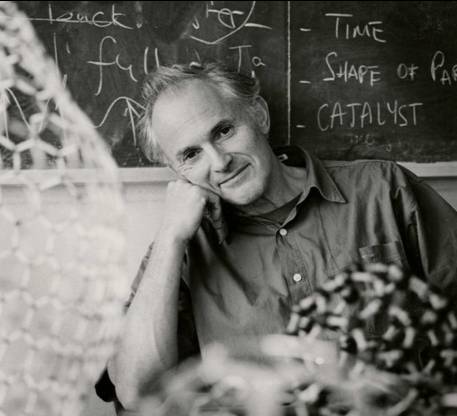
The distinguished chemist Harry Kroto died on April 30, 2016, at the age of 76, according to Chemical & Engineering News (May 2, 2016). Kroto shared the 1996 Nobel Prize in chemistry with Robert Curl and Richard Smalley for their discovery of fullerenes, carbon molecules assuming exotic shapes, such as the spherical buckminsterfullerene. As Chemical & Engineering News observed, "The discovery was greeted with both enthusiasm and skepticism, noted the Nobel Prize committee when announcing the 1996 prize: 'No physicist or chemist had expected that carbon would be found in such a symmetrical form other than those already known.'" Kroto was also concerned with the public understanding of science, helping to establish organizations to aid science communicators and science educators.
Kroto was enthusiastic about evolution, writing, in a post on his website, "Darwin's Theory of Evolution is supported by an avalanche of synergistic cross-disciplinary evidence from almost every branch of the sciences: Paleontology, geology, biology, genetics, chemistry, physics etc." And he was correspondingly concerned about creationist assaults on the teaching of evolution, telling a New Zealand newspaper that people who insert creationism into the science curriculum "really p... me off" (bowdlerism in original). His concern was not expressed only to the media. In 2008, for example, he publicly decried legislative efforts to undermine evolution education in his adopted home of Florida, as the Sarasota Herald-Tribune (April 15, 2008) reported. He also vocally supported efforts to repeal Louisiana's so-called Science Education Act — helping Zack Kopplin to recruit his fellow Nobel laureates to endorse the repeal effort — and to ban the teaching of creationism in Scotland.
Kroto was born on October 7, 1939, in Wisbech, Cambridgeshire, England. He studied at the University of Sheffield, where he earned his B.Sc. in chemistry in 1961 and his Ph.D. in chemistry in 1964. After stints as a researcher at the National Research Council in Canada and Bell Telephone Laboratories, he taught at the University of Sussex from 1977 to 2001. He ended his career at Florida State University, where he was the Francis Eppes Professor of Chemistry and Biochemistry from 2004 until his death. Beside the Nobel Prize, his honors included the Michael Faraday Award and the Copley Medal from the Royal Society of London as well as over forty honorary degrees. He was a Fellow of the Royal Society of London and a foreign associate of the National Academy of Sciences.
